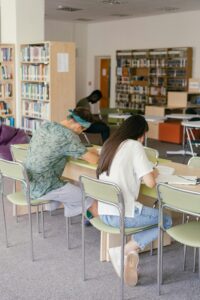This interview refers to the Boroume at School project which can be found in our Good Practices section.
GOOD PRACTICE OVERVIEW, CHALLENGES AND OPPORTUNITIES
What did you like the most about this practice?
Collaborating with the parents was the most useful way to achieve this practice.
What did you like the least about this practice?
Generally, when implementing a practice that is intended to become a routine for children, one can expect to encounter some challenges. Especially, in Greece, where a teacher is not permanently cooperating with the same school, making the sustainability and process making of the programme challenging.
How can this practice be improved in the future?
The practice is going to be improved only when the teacher acts as an example and observes what the students do in the classroom, which is quite difficult because we do other things as teachers.
Do you think your understanding of Food Literacy and sustainable food systems has been improved after implementing this practice?
I realized that it had become “a way of life” for me. When my students saw me personally disposing of recycling waste in the recycling bins, they immediately offered to do the same. So, I would add, that us, as teachers, who have received the “Boroume at School” training, should incorporate its components to our routine, and inspire students towards the path of understanding better the issue of food waste.
Have you made any changes to your diet yet after implementing this practice?
Not specifically, but I have noticed that I have been more curious and cautious.
Do you have any ideas, how can sustainable food systems be promoted among young people/children?
Everyday practices at school.
It is significant to highlight that Thessaloniki’s Bing Bang School frequently follows wholesome food habits. Particularly, the school strongly encourages food waste reduction as a general practice. There is a ritualistic approach to lunchtime, when kids consume their meals while taking in the peaceful vibe generated by lit candles and calming music. Children who have not eaten their food at the end of the meal also have the option of sharing it with their peers.
The practice described is:
Teachers should teach children what and how to compost their waste. They had two different bins in each classroom, one for composting and one regular. One student for each week was in charge to check the composting bin and find out if the waste is proper for composting. The practice was always overviewed by the class-teacher who helped their students if they had concerns.







